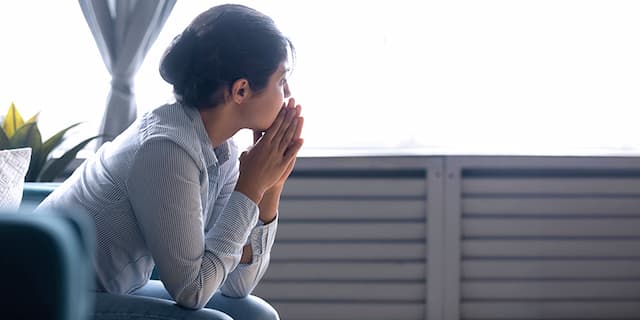14th Sunday in Ordinary Time: Rest and Restlessness

Rest is fundamental to our well-being—emotionally, physically, and spiritually. Our bodies need rest and so does our souls.
Stress has become one of the most common causes of sickness today—emotional and physical sickness. Many studies have shown that stress is one of the major causes of heart attack and other major health problems. We long for a stress free living. We long for genuine and peaceful rest.
For many of us, our idea of rest and recreation is taking few days off from work, chilling out, having fun, hanging out and enjoying the company of friends and family. It can also involve longer days for holidays going to other places or enjoying nature, swimming in the sea, lake or rivers or hiking into mountains and forests. After a well spent rest, we feel rejuvenated and refreshed, become more inspired and ready to once again face and continue our work and projects.
That is why rest and recreation are essentially connected. A truly good rest results in a recreation. After a good rest, we become a new creation. A good rest helps us to review our lives in order that we may know where we are going to next. Thus, rest can sometimes result in a new idea, an inspiration that can bring life-changing event, a new lifestyle. It may also call for going back, a return to our roots, a return to nature. In other words, rest is being attentive to our body, emotions and soul. What is the most profound thing that your body and soul is telling you now?
Unfortunately, many people in our country today are deprived of this idea of rest. Many people has to work even up to Sundays to just barely get by. Because of the lack of local work opportunities, many parents go overseas to work leaving behind their children. This distorts the experience of rest as how can one enjoy the company of family when one’s parents are not here. The urban environment generates lots of situation which affect the quality of rest – air pollution, traffic and noise, let alone, the chaos, trash and hustle and bustle of city life. Technology has also made it harder for genuine rest. As we get wrapped up more and more in mobile phones, texting, email, Facebook, and the internet, we are constantly distracted by texts, emails, phone messages which rob us of the simple capacity to stop, shut off the machines, and rest.
Perhaps, this is the reason why for many people the idea of rest is just to escape from the daily humdrum, pains and problems of our daily life like drinking with friends all day Sunday. We “thank God it’s Friday” so we can go out ‘gimmicking’—partying and bar hopping until early Saturday morning. Many times, this kind of rest leave us more tired than before, not to mention, the hangover. No wonder, the rest we do sometimes makes us feel more tired that after our ‘rest’ we want to take a rest again.
If rest is essential to our well-being, restlessness is a constant itch of our human existence. We are essentially restless, even if we have taken a good rest. In Tagalog, we call this existential restless itch, “Hindi mapakali”. We long for a more profound and complete rest. Restlessness is not just physical and emotional but also spiritual. It involves our soul. All throughout our lives we look for that thing that will ultimately give us true rest.
As Christians we believe that we cannot truly rest until we can rest in Jesus and learn from him about the fundamental meaning of life. As St. Augustine said in his Confessions: “You have made us for yourself, O Lord, and our heart is restless until it rests in you.”[1]
In the Gospel today, Jesus comforts us:
“Come to me, all you who labor and are burdened, and I will give you rest.”
And how can we have rest in Jesus, Jesus tells us:
“Take my yoke upon you and learn from me, for I am meek and humble of heart; and you will find rest for yourselves. For my yoke is easy, and my burden light.”
Wait a minute, I thought Jesus will give us rest but why is he giving us his yoke? Is it not that yoke and rest are contradiction in terms?
Jesus’ yoke is to learn from him for as he says, “I am gentle and humble of heart.” Jesus’ yoke is the yoke of humility and service. It praises God for contradicting the wisdom of the world: “for what you have hidden from the learned and the clever you have revealed to the merest children.”
Jesus also challenges us that perhaps we should learn from the meek and humble, the little people, the sick and dying, the poor and hungry. For it is among them that we find Jesus and learn to become humble and meek of heart.
Jesus wants to address a more profound and fundamental rest—the ultimate rest. Most of our rest only involves pleasure and enjoyment. Rest without wholeness of being and spiritual rest is not enough. True rest involves rest for the soul. Jesus’ rest gives us rest for our souls but it does not exclude the element of joy. As Pope Francis has said, “The joy of the Gospel fills the hearts and lives of all who encounter Jesus.”[2]
[1] Lib 1,1-2,2.5,5: CSEL 33, 1-5
[2] Evangelii Gaudium, 1.
I am passionate about the intersection between new media and technology. I continue to research and apply new media in theology and vice-versa. I am also a fan of Our Mother of Perpetual Help and her continuing relevance in today’s digital world.
View all posts by Baclaran Phenomenon




